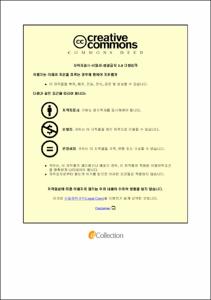Ulsan Univ. Repository
Thesis
General Graduate School
Department of Sociology and Social Welfare
1. Theses (Master)
FACTORS THAT INFLUENCE ADAPTATION TO PARENTHOOD: MULTICULTURAL WIVES IN KOREA
- Abstract
- This study empirically examined the adaptation of multicultural wives to parenthood in Korea. We conducted the study using data from the ‘2015 Fact finding survey on multicultural families in Korea’ carried out by the Ministry of Gender, Equality and Family. The survey team gathered data on a sample of 27,120 family units and 17,109 housewives participated in this survey. We extracted the relevant independent and dependent variables from the survey data and used the information obtained from the 17,109 wives to carry out our empirical study. Despite the availability of multicultural policy programs aimed at fostering adaptation of migrant wives, the recent survey reported that there was an increase in child caring challenges and lack of social relations in positive social interaction and emotional or informational support.
The purpose of the study was to examine the effects of acculturation strategies, social capital and family conflict on parenthood adaptation at home. In relation to acculturation strategies, our study aimed at investigating if how migrant wives settle in (acculturate) affects how well they adapt to parenthood. Acculturation strategies are classified under four different categories as 1) Assimilation which takes place when individuals do not wish to maintain their cultural identity and opt to interact with other cultures, 2) Separation takes place when individuals prefer to keep their origin cultures and do not wish to interact with other cultures, 3) Integration occurs when individuals are interested in keeping their original culture while in contact with other cultural groups and 4) Marginalization involves little interest in cultural maintenance and little interest in interacting with other cultures. We identified native language use at home as Integration, experiences of social discrimination as Separation and social difficulty as well as adopting Korean culture as Assimilation. The empirical analyses revealed that multicultural wives who were encouraged to use their native languages at home had good relations with their children and successfully fulfilled their roles as mothers. These findings were consistent with previous studies that show that combined involvement with both national ethnic cultures rather than opting for one is the most beneficial to immigrants wellbeing (Berry, 1997; Phinney and Devich-Navarro, 1997). However, experiences of social discrimination negatively affected the parent-child relations as well as the mother’s role. And yet, past studies on migration and adaptation have reported social discrimination as one of the most powerful predictors of poor adaptation (Berry et al.,2006, Jasinskaja-Lahti, Liebkind, Jaakola and Reuter, 2006).
Several studies have demonstrated the role of social capital on the wellbeing of immigrants. Social capital has been shown as a source of emotional and social support to help people go through different situations and avails limited resources like clearly shaped norms and embedded trustworthiness (Portes, 1998; Coleman, 1988). The results obtained indicated that social capital partially affects adaptation to parenthood. The empirical study revealed that social participation and person to person contact with those from the same origin were the most significant sources of social capital.
Family conflicts had negative effects on parenthood adaptation. Statistics from the survey showed that majority of the multicultural wives had no experiences of family conflicts. This can be attributed to the existence of strict policies aimed at protecting multicultural wives and their children. The family conflicts tested included domestic violence, extra marital affairs, conflicts with in laws and so on.
The study also focused on welfare programs aimed at helping migrant wives to adapt to parenthood at home. It was found that language and family education welfare programs had positive effects on parent-child relations and the mother’s role while employment education welfare programs had negative effects on parenthood adaptation. Despite the availability of employment education assistance programs, majority of the multicultural wives did not make use of the welfare programs. However, the empirical analysis revealed that employment education assistance programs had a huge impact on parenthood adaptation of migrant wives.
The findings from this study provide some policy suggestions like increasing opportunities for multicultural wives to gain access to social networks that can provide them with useful information and redesigning the multicultural education programs to include cultural context of the migrant wives. In addition, provision of more specialized welfare programs to help multicultural wives adapt to parenting in Korea. These welfare programs ought to be carefully planned so that migrant wives with busy child caring schedules at home can conveniently access them too.
- Issued Date
- 2018
- Awarded Date
- 2018-08
- Type
- Dissertation
- Keyword
- Multiple cultures
- Alternative Author(s)
- Catriona Omara
- Affiliation
- 울산대학교
- Department
- 일반대학원 사회·복지학과
- Advisor
- SungKyun Lee
- Degree
- Master
- Publisher
- 울산대학교 일반대학원 사회·복지학과
- Language
- eng
- Rights
- 울산대학교 논문은 저작권에 의해 보호받습니다.
- Appears in Collections:
- Department of Sociology and Social Welfare > 1. Theses (Master)
- 파일 목록
-
-
Download
 200000108751.pdf
기타 데이터 / 595.05 kB / Adobe PDF
200000108751.pdf
기타 데이터 / 595.05 kB / Adobe PDF
-
Items in Repository are protected by copyright, with all rights reserved, unless otherwise indicated.